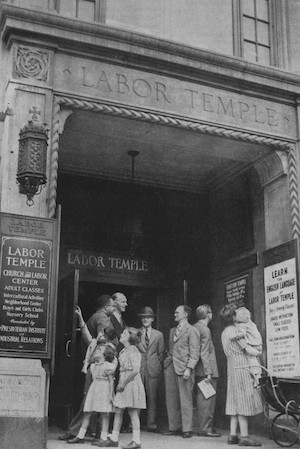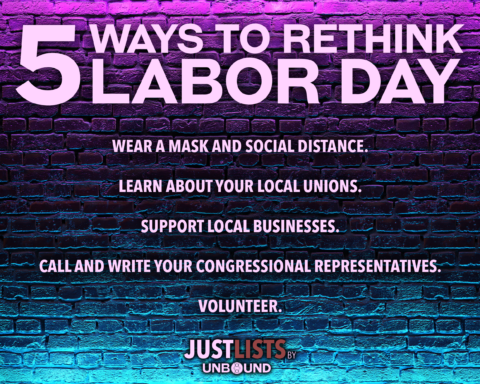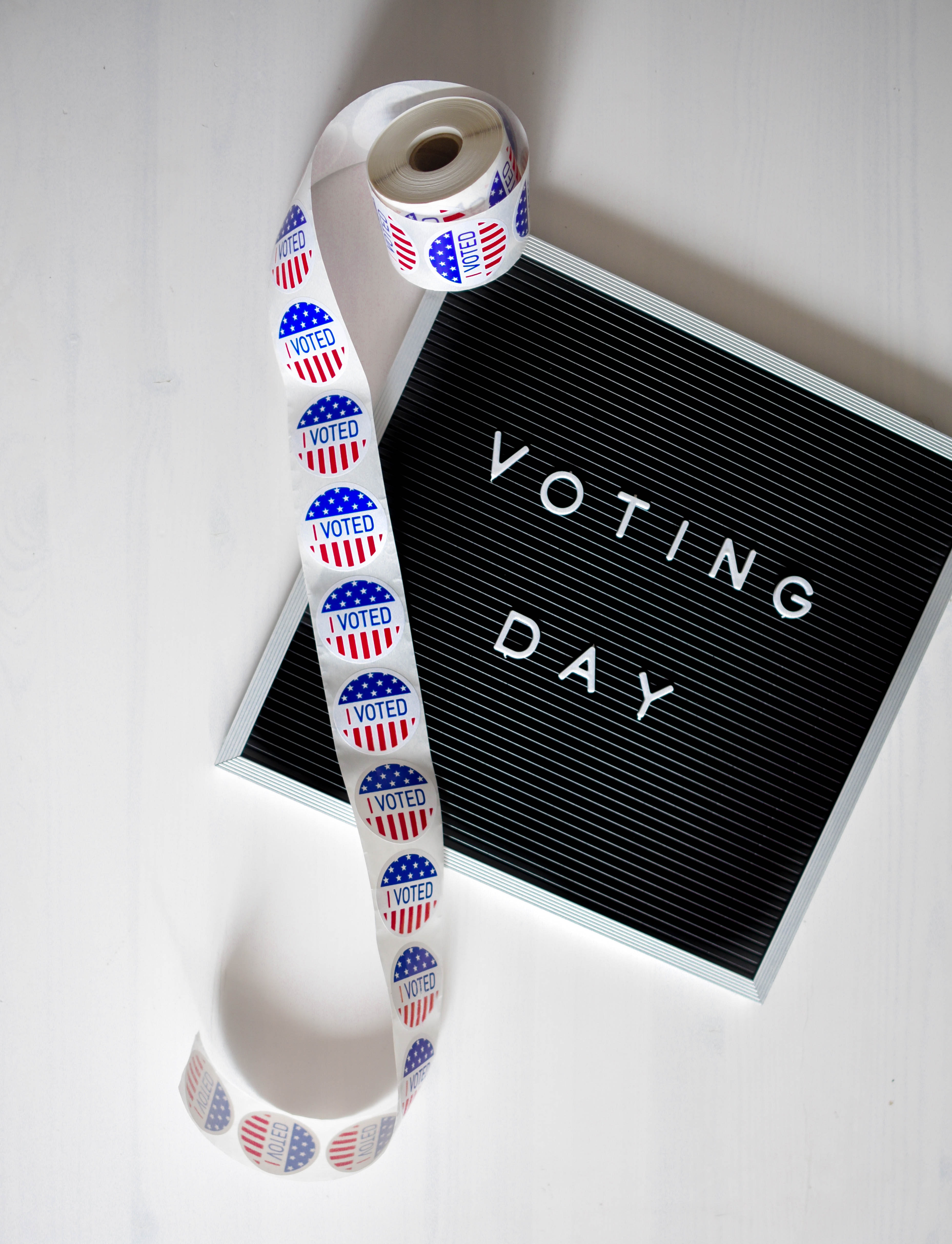The Social Creed, at 10 years, links us to the Social Gospel and Labor Day.

It is easy to focus on what divides groups of Christians from each other and from other movements of faith. But, in the Labor Day spirit of coming together to work for justice, we remember a document that emphasizes that we are one Body in Christ: the ecumenical Social Creed, renewed in 2008.
The Social Creed espouses some ideals: who wouldn’t want “high quality public education for all and universal, affordable and accessible healthcare?” What about “full civil, political and economic rights for women and men of all races?” Or even, “Public service as a high vocation, with real limits on the power of private interests in politics?”
Those are only three of twenty social goals and principles in the Social Creed for the 21st Century, which was adopted by both the National Council of Churches of Christ and the Presbyterian Church (U.S.A.) assemblies on the 100th anniversary of the original Social Creed of the Churches in 1908. Not all of the goals had overwhelming public support. The churches were acting— well before the 2008 credit crisis and the presidential election—to call out the new Gilded Age of inequality and the monstrous mistakes of militarism summed up in the Iraq War.
___________________________________________
Every successful social reform movement in US history—abolition, women’s suffrage, prohibition (however workable), support for the UN and human rights, civil rights—has been partly a movement of activist Christians.
___________________________________________
The ecumenical churches chose to update the Social Creed because we will always need to reimagine the whole social covenant periodically—our relationship to each other comes in the context of our times. The 2008 Social Creed is the best short summary (at 630 words) of where the ecumenical churches stand, and it is not only comprehensive in scope but holistic in its understanding of how policy choices should be anchored in faith and practice. It affirms “grace over greed in economic life” precisely because it understands that grace is priceless, reflecting the divine giving beneath and beyond all economic arrangements. And the Social Creed uses the language of individual rights without losing the roles of character and virtue in the Christian life.
This is not to argue that other “creeds” should not be invented, even though it suggests that many of them are reinventing the wheel. In 2008, task forces of the Presbyterian and Methodist churches as well as the National Council of Churches itself were quite aware of de facto social creeds authored by Jim Wallis of Sojourners and Rabbi Michael Lerner of Tikkun, as well as Tavis Smiley’s The Covenant with Black America (which also got an update this year). Today’s Poor Peoples’ Campaign, a movement led by Rev. Drs. William Barber and Elizabeth Theoharis, has similar core affirmations and goals .

All of these statements are far more idealistic than political party platforms—as they should be. They also point to workable economic proposals, such as those provided by the Institute for Policy Studies or Demos (DC and NYC-based think tanks), but these de facto creeds predominantly focus on principles to challenge the way our corrupt politics shift the goal posts on social justice. Re-articulating our social goals helps us defend the common good.
The Social Creeds (and there were several others between 1908 and 2008) had the virtue of being composed and approved by delegates and representatives of churches in the ecumenical movement. The ecumenical movement in the United States, in fact, was animated largely by the Social Gospel movement, and the invention of the Social Creed reflected the non-doctrinal emphasis of the Social Gospel leaders who created it as part of their overall drive to improve society. The energy of social reform ran through much of organized Protestantism in both the white churches—often still ethnicity-specific in membership—and the African American churches. Gary Dorrien’s recent books on the Black Social Gospel help us understand what that movement looked like under Jim Crow as well as in parts of the country considered to have a “Progressive Era.” Every successful social reform movement in US history—abolition, women’s suffrage, prohibition (however workable), support for the UN and human rights, civil rights—has been partly a movement of activist Christians. Those contributions are documented in the 28-minute DVD done to accompany the Social Creed.
___________________________________________
The moral teachings of scripture are for communities, not simply individuals.
___________________________________________
 The introduction to the book Prayers for the New Social Awakening recalls that sense of “applied Christianity” and pays homage to Social Gospel prophet Walter Rauschenbusch’s 1909 Prayers of the Social Awakening, sometimes titled, For God and the People. The 99 prayers from a diverse group of contemporary Christians in the newer book reflect both current ecumenism and the ways the new Social Creed combines strengths of the Social Gospel with learnings from Christian Realist, Liberation, Feminist, and Earth-honoring theologies. The connection of prayer to moral action perhaps goes without saying, but it is instructive to look at differences in prayer style and language. The Orthodox Churches, who influenced the Trinitarian shape of the new Social Creed, see the presence of the Trinity everywhere. The Methodist contributions include the influence of process theology. And the Evangelical prayers in the book—of course—emphasize the role of Jesus.
The introduction to the book Prayers for the New Social Awakening recalls that sense of “applied Christianity” and pays homage to Social Gospel prophet Walter Rauschenbusch’s 1909 Prayers of the Social Awakening, sometimes titled, For God and the People. The 99 prayers from a diverse group of contemporary Christians in the newer book reflect both current ecumenism and the ways the new Social Creed combines strengths of the Social Gospel with learnings from Christian Realist, Liberation, Feminist, and Earth-honoring theologies. The connection of prayer to moral action perhaps goes without saying, but it is instructive to look at differences in prayer style and language. The Orthodox Churches, who influenced the Trinitarian shape of the new Social Creed, see the presence of the Trinity everywhere. The Methodist contributions include the influence of process theology. And the Evangelical prayers in the book—of course—emphasize the role of Jesus.
If the virtues or character we seek to live out are shaped by the values and visions of communities that influence us, from family and workplace to national politics and exposure to other countries, then the church’s voice needs to be in that mix. Especially if those communities of work and self-tailored media are getting smaller and smaller, we know that God’s Spirit is a silo-crasher and horizon-expander. And if today’s celebration of resentment, fear, and inequality is unprecedented in our country, Christian concern for the impact of money on the soul goes back to Jesus. What the Social Gospel started, and what mainstream Biblical scholarship now illuminates, is the understanding of Jesus as the leader of a social and religious reform movement, well before individualism as we know it. Thus the moral teachings of scripture are for communities, not simply individuals.
The Presbyterian Planning Calendar puts the celebration of the Social Creed on Labor Day as a reminder of the churches’ key support for labor in 1908 in the struggles for better conditions and union protections. The Presbyterian Church’s first economic justice staff person, hired in 1903, was missing an arm from when he worked as a breaker boy in a coal mine. Not every church member supported labor, of course, but the churches could not be silent about what was happening in the factories, sweatshops, and mines. That first Social Creed was focused on practical improvements as well as utopian ones, such as the “abolition of poverty.” The 1908 Creed was a bit of a laundry list, though it followed an hour-long explanatory exhortation. But perhaps that helped it get adopted unanimously by an assembly that included many members of denominations who knew what theological confessions looked like. Ecumenism meant mutual trust and concerted action. In some respects, it paralleled and supported the cross-cutting human solidarity at the core of the labor movement.
Most of the denominations did not do much with the Social Creed concept, although it provides a handy platform for joint action by members of the National Council of Churches. Only the United Methodists have kept it at the core of their Social Principles and review it every four years. The 1908 Social Creed is posted prominently in the United Methodist building that anchors the witness of all the churches in Washington, DC, standing right next to the Supreme Court building. (This essay will be shared with their Board of Church and Society to encourage them to make reference to the ecumenical Social Creed for the 21st Century in their current updating work. The 2008 Creed, in fact, was eloquently seconded at the plenary of the National Council by distinguished Methodist ethicist, J. Philip Wogaman.)
In her book on The Promotion of Social Righteousness, in the series on the Great Ends of the Church, theologian Cynthia Rigby uses the Social Creed for the 21st Century as a chief example of the balance of scope and depth in social witness. Readers may note that the Social Creed avoids “hot button” phrasing and sloganeering. Again, it is not a market-tested Contract with America, which was used in the 1994 election cycle to pull together a grab-bag of tactical and strategic objectives. In the PC(USA), a Presbyterian Panel survey was done by Research Services to assess the views of Presbyterians and found high levels of agreement with most of the Social Creed points.ii Perhaps data from the Pew surveys and Public Religion Research Institute could be used to test the Social Creed positions more broadly.
___________________________________________
Christian vision, always open to God’s in-breaking kingdom or reign, throws our current social covenant of exclusion and abandonment into question.
___________________________________________
In the oddly distorted politics of our day, particular “indisputable” policy elements, like the need for affordable healthcare, or enforcement of anti-corruption laws, or preventing climate change on one side, and lower taxes, restricting immigration, and military capacity on the other, will generate the headlines and the ground game will be about voter turnout and vote suppression. Finding the single most motivating issue for one’s base will still be favored, whether that is reproductive rights or their denial, guns as a symbol of freedom (not mentioned in the Social Creed), support for Israel (no matter what it does to the Palestinians), or racial fairness (or its denial). Many fear that racism will give a different meaning to the elephant in the political room.
But, as Michael Kinnamon, then General Secretary of the National Council stressed, the core of the Social Creed for the 21st Century had to be a vision. That vision is contained in the introductory paragraph and the concluding language, a mixture of charge and benediction. As a
Christian vision, always open to God’s in-breaking kingdom or reign, throws our current social covenant of exclusion and abandonment into question. Racism is countered from the Creed’s first affirmation. It emphasizes the ideals, or “better angels,” but these are not just choices for do-gooders; they are fruits of the Gospel, basic expressions of the Spirit in us seeking to honor the divine image in all people. Social Creeds and other pointers to God’s covenant with humanity help us evaluate political goalposts, sometimes to keep them from being moved, and sometimes to urge that immoral goalposts be removed.
May the 2008 formulation of our ecumenical ethos continue to help keep our public witness gracious and strong.
***
Author Bio: General Editor Chris Iosso has been ordained (Elizabeth Presbytery in NJ), inducted into General Assembly Mission Council service in NYC, and educated (Johns Hopkins—BA, Princeton—MDiv, and Union (NY)—PhD, Seminaries) in the print dispensation. After serving as a pastor and parent of three in Westchester County, NY, he returned to the PMA as Coordinator of the Advisory Committee for Social Witness Policy. He is married to chaplain Robin Hogle.
Read more from this issue, Make America Just. Period. (A Moral Platform for the Christian “Justice Voter”).






Unbound Social